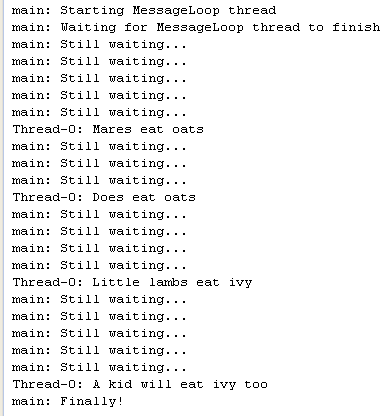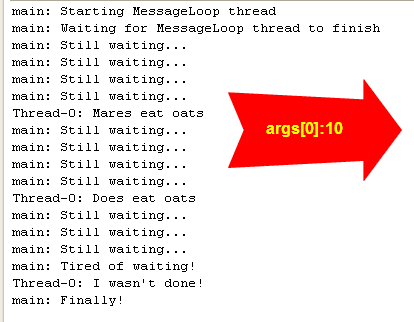- golang学习笔记——grom连接mysql
怪我冷i
golang从入门到入门golang
GORM指南ThefantasticORMlibraryforGolangaimstobedeveloperfriendly.Golang的ORM库旨在对开发人员友好。特性全功能ORM关联(HasOne,HasMany,BelongsTo,ManyToMany,多态,单表继承)Create,Save,Update,Delete,Find中钩子方法支持Preload、Joins的预加载事务,嵌套事务
- Flink SQL Query 语法(三)- Join
Alex90
主要引用官方文档https://ci.apache.org/projects/flink/flink-docs-release-1.13/docs/dev/table/sql/queries/joins/操作符JoinFlinkSQL支持对动态表进行Join操作。有几种不同类型的Join可以支持多种语义。默认情况下,Join的顺序不会优化。表按FROM子句中指定的顺序联接。用户可以调整Join查询
- 详述FlinkSql Join操作
orange大数据技术探索者
#flink迁移FlinkSqFlinkJoin
FlinkSql的JoinFlink官网将其分为了Joins和WindowJoins两个大类,其中里面又分了很多Join方式参考文档:Joins|ApacheFlinkWindowJOIN|ApacheFlinkJoins官网介绍共有6种方式:RegularJoin:流与流的Join,包括InnerJoin、OuterEqualJoinIntervalJoin:流与流的Join,两条流一段时间区间
- 【go】gorm\xorm\ent多表联查
微雨停了
gogolang开发语言后端
文章目录1gorm2xorm3ent前言:本文介绍golang三种orm框架联表查询1gormtypeUserTeststruct{Countint`json:"count,omitempty"`Typestring`json:"type,omitempty"`}res:=[]UserTest{}db.Joins("LEFTJOINuserONorder.user_id=user.id").Fin
- Gorm介绍、数据库连接与模型定义
流光影下
go数据操作数据库
1.gorm介绍GORM是使用Go语言开发的友好的ORM库。GithubGORM中文官方网站全功能ORM关联(拥有一个,拥有多个,属于,多对多,多态,单表继承)Create,Save,Update,Delete,Find中钩子方法支持Preload、Joins的预加载事务,嵌套事务,SavePoint,RollbackTotoSavedPointContext、预编译模式、DryRun模式批量插入
- Debezium发布历史103
大大蚊子
debeziumCDCFlinkCDC数据库运维大数据
原文地址:https://debezium.io/blog/2021/03/18/understanding-non-key-joins-with-quarkus-extension-for-kafka-streams/欢迎关注留言,我是收集整理小能手,工具翻译,仅供参考,笔芯笔芯.了解KafkaStreams的Quarkus扩展的非键连接三月18,2021作者:AnishaMohantykafk
- 第四章 FlinkAPI & 编程模型
随缘清风殇
#Flink专题flink
1、API基础概述1.1、四层API(1)第⼀层是最底层的抽象为有状态实时流处理,抽象实现是ProcessFunction,⽤于底层处理(2)第⼆层抽象是CoreAPIs,许多应⽤程序不需要使⽤到上述最底层抽象的API,⽽是使⽤CoreAPIs进⾏开发,目前开发使用最多的;例如各种形式的⽤户⾃定义转换(transformations)、联接(joins)、聚合(aggregations)、窗⼝(w
- flink 时态表 Join
卤蛋x001
flinkflinkbigdata大数据
注意:时态表时态变函数Blink都支持推荐使用但是时态表函数不支持DDL标准SQL创建所以可以使时态表功能相近并且时态表可以DDL创建使用时态表函数只能使用TABLEAPI去注册packagecom.cn.sql.joins.temporaljoins;importorg.apache.flink.streaming.api.environment.StreamExecutionEnvironme
- GO数据库操作
aiee
后端(golang)golang开发语言后端
Golang出色的ORM库为GORM。官网文档:https://gorm.io/docs/我们来说说增删改查的用法,更深入的研究可以去官网看看。GORM功能概览:关联(有一个、有多个、属于、多对多、多态性、单表继承)挂钩(创建/保存/更新/删除/查找之前/之后)急切加载Preload,Joins事务、嵌套事务、保存点、RollbackTo到保存点上下文、准备语句模式、DryRun模式批量插入、Fi
- 聊聊flink Table的Joins
go4it
序本文主要研究一下flinkTable的Joins实例InnerJoinTableleft=tableEnv.fromDataSet(ds1,"a,b,c");Tableright=tableEnv.fromDataSet(ds2,"d,e,f");Tableresult=left.join(right).where("a=d").select("a,b,e");join方法即innerjoinO
- 【CMU 15-445】Lecture 11: Joins Algorithms 学习笔记
juruo_c
CMU15-445database数据库
JoinsAlgorithmsNestedLoopJoinNaiveNestedLoopJoinBLockNestedLoopJoinIndexNestedLoopJoinSort-MergeJoinHashJoinBasicHashJoinPartitionedHashJoinConclusion本节课主要介绍的是数据库系统中的一些Join算法NestedLoopJoinNaiveNestedL
- Flink系列之:Joins
最笨的羊羊
Flink大数据Flink系列Joins
Flink系列之:Joins一、Joins二、RegularJoins三、INNEREqui-JOIN四、OUTEREqui-JOIN五、IntervalJoins六、TemporalJoins七、事件时间TemporalJoin八、处理时间TemporalJoin九、时态表函数连接十、LookupJoin十一、数组展开十二、表功能一、Joins适用于流、批一体FlinkSQL支持对动态表进行复杂
- Clickhouse Join
TaiKuLaHa
clickhouseclickhouse哈希算法算法
ClickHouse中的HashJoin,ParallelHashJoin,GraceHashJoinhttps://www.cnblogs.com/abclife/p/17579883.htmlhttps://clickhouse.com/blog/clickhouse-fully-supports-joins-full-sort-partial-merge-part3总结本文描述并比较了Cli
- Go语言 orm库之gorm
无风的雨
gogogorm
GORM是一个比较流行且功能齐全的orm库,主要有以下特性全功能ORM关联(HasOne,HasMany,BelongsTo,ManyToMany,多态,单表继承)Create,Save,Update,Delete,Find中钩子方法支持Preload、Joins的预加载事务,嵌套事务,SavePoint,RollbackToSavedPointContext,预编译模式,DryRun模式批量插入
- FlinkSql-Temporal Joins-Lookup Join
PONY LEE
flink数据库java大数据
说明在FlinkSQL中,TemporalJoins是一种常见的数据关联操作,特别适用于处理包含时间维度的数据。LookupJoin是TemporalJoins的一种类型,它允许将流数据与维表数据进行关联。使用场景如下:实时维度关联:当您有一个实时的流数据流,并且需要与维表进行关联,以获取维度信息时,LookupJoin是一个很有用的工具。例如,在电商领域,您可以将实时的订单流与商品维表进行关联,
- ORM框架SQLAlchemy
hixiaoyang
数据库
ORM框架SQLAlchemySQLAlchemy简介ORM基础知识SQLAlchemy核心概念SQLAlchemyAPISQLAlchemyEngineSQLAlchemySessionSQLAlchemy定义模型SQLAlchemy数据库连接SQLAlchemy数据库操作SQLAlchemy查询语言SQLAlchemy事务管理SQLAlchemy关联关系SQLAlchemy连接(Joins)查
- Flink之Java Table API的使用
CodeDevMaster
#FlinkflinkjavapythonTableAPI
JavaTableAPI的使用使用JavaTableAPI开发添加依赖创建表环境创建表查询表输出表使用示例表和流的转换流DataStream转换成表Table表Table转换成流DataStream示例数据类型自定义函数UDF标量函数表函数聚合函数表聚合函数API方法汇总基本方法列操作聚合操作Joins合并操作排序GroupWindowsOverWindows使用JavaTableAPI开发添加依
- SQL note1:Basic Queries + Joins & Subqueries
吕飞雨的头发不能秃
数据库学习数据库sql
目录一、BasicQueries1、数据库术语2、查表3、过滤掉我们不感兴趣的行4、布尔运算5、过滤空值(NULL)6、分组和聚合1)汇总数据的列2)汇总数据组7、分组聚合的警告1)SELECTage,AVG(num_dogs)FROMPerson;(×)2)SELECTage,num_dogsFROMPersonGROUPBYage;(×)8、OrderBy9、Limit10、小结二、Joins
- Merge Joins(PostgreSQL 14 Internals翻译版)
数据源的港湾
PostgreSQLpostgresql
合并连接处理按连接键排序的数据集,并返回以类似方式排序的结果。输入集可以在索引扫描后预先排序;否则,执行者必须在实际合并开始之前对它们进行排序。归并排序集让我们看一个合并连接的例子;它在执行计划中由MergeJoin节点表示:优化器更喜欢这种连接方法,因为它返回排序的结果,如ORDERBY子句定义的那样。在选择计划时,优化器会注意数据集的排序顺序,除非确实需要,否则不会执行任何排序。例如,如果合并
- [NOTE] WebGoat v8.2.2学习笔记
Archeri_Shade
靶场学习前端web安全
[NOTE]WebGoatv8.2.2学习笔记文章目录[NOTE]WebGoatv8.2.2学习笔记前言CIA常见编码形式OpenSSL使用docker安全SQL安全SQLiSQL特殊字符UNION&JOINS一个盲注payload&BP爆破SQLi防御预编译存储过程最小特权原则预编译的问题路径遍历认证失效JWTBASE64URL一些风险点JWT签名密钥爆破Token的使用Tom&Jerry的题J
- MYSQL 多表联查详解
当我们不再理解世界
#MYSQLmysql数据库多表查询左连接内连接笛卡尔积leftjoin
目录一、一个案例引发的多表连接二、笛卡尔积的错误和与正确的多表查询2.1、笛卡尔积错误展示2.2、笛卡尔积解决方法2.3、练习三、多表查询分类3.1、等值连接vs非等值连接3.2、自连接vs非自连接3.3、内连接vs外连接内连接(innerjoin)外连接左外连接(leftjoin)右外连接(rightjoin)3.4、七种JOINS查询左2图右2图左下图右下图3.5、自然连接(naturaljo
- SQL Join连接
爱编程的鱼
SOL教程sql数据库java
SQL连接(Joins)SQLjoin用于把来自两个或多个表的行结合起来。SQLJOINSQLJOIN子句用于把来自两个或多个表的行结合起来,基于这些表之间的共同字段。简单地说,就是先确定一个主表作为结果集,然后,把其他表的行有选择性地“连接”在主表结果集上。最常见的JOIN类型:SQLINNERJOIN(简单的JOIN)。SQLINNERJOIN从多个表中返回满足JOIN条件的所有行。让我们看看
- PostgreSQL 进阶 - 使用foreign key,使用 subqueries 插入,inner joins,outer joins
练习两年半的工程师
PostgreSQLpostgresql数据库
1.使用foreignkey创建tableCREATETABLEorders(order_idSERIALPRIMARYKEY,purchase_totalNUMERIC,timestampTIMESTAMPTZ,customer_idINTREFERENCEScustomers(customer_id)ONDELETECASCADE);“order_id”:作为主键的自增序列,使用SERIAL数
- GORM 指南
little Chen1
数据库sqlgolang
hefantasticORMlibraryforGolangaimstobedeveloperfriendly.特性全功能ORM关联(HasOne,HasMany,BelongsTo,ManyToMany,多态,单表继承)Create,Save,Update,Delete,Find中钩子方法支持Preload、Joins的预加载事务,嵌套事务,SavePoint,RollbackToSavedPo
- 金仓数据库KingbaseES V8R3使用Gorm指南
沉舟侧畔千帆过_
数据库金仓数据库
【关键工具】gorm1.概述1.1gorm说明Gorm,一个神奇的,对开发人员友好的GolangORM库全功能ORM关联(HasOne,HasMany,BelongsTo,ManyToMany,多态,单表继承)Create,Save,Update,Delete,Find中钩子方法支持Preload、Joins的预加载事务,嵌套事务,SavePoint,RollbackToSavedPointCon
- Visual Representation of SQL Joins
春泥村雨
有些知识没有深刻的理解,原因其实是知识传播人没用最简单的语言来进行表述。VisualRepresentationofSQLJoins
- 27、Flink 的SQL之SELECT (SQL Hints 和 Joins)介绍及详细示例(2-2)
一瓢一瓢的饮 alanchan
#Flink专栏flinksql大数据flinksqlflinkjoinflink流批一体化flink时态表
Flink系列文章1、Flink部署、概念介绍、source、transformation、sink使用示例、四大基石介绍和示例等系列综合文章链接13、Flink的tableapi与sql的基本概念、通用api介绍及入门示例14、Flink的tableapi与sql之数据类型:内置数据类型以及它们的属性15、Flink的tableapi与sql之流式概念-详解的介绍了动态表、时间属性配置(如何处理
- MySQL内连接和外连接及七种SQL JOINS的实现
IDC02-阿杰
服务器MySQLsql数据库服务器linuxmysql
1.内连接2.外连接左外连接:右外连接:满外连接:3.SQL99语法实现多表查询3.1SQL99实现内连接3.2SQL99语法实现外连接3.2.1左外连接3.2.2右外连接3.2.3满外连接4.总结:七种SQLJOINS的实现4.1内连接4.2左外连接4.3右外连接4.4第四种JOIN4.5第五种JOIN4.6满外连接方法一方法二4.7第七种JOIN1.内连接内连接:合并具有同一列的两个以上的表的
- 27、Flink 的SQL之SELECT (SQL Hints 和 Joins)介绍及详细示例(2-1)
一瓢一瓢的饮 alanchan
#Flink专栏flink大数据flinksqlflinkkafkaflink流批一体化flinkhiveflinkhdfs
Flink系列文章1、Flink部署、概念介绍、source、transformation、sink使用示例、四大基石介绍和示例等系列综合文章链接13、Flink的tableapi与sql的基本概念、通用api介绍及入门示例14、Flink的tableapi与sql之数据类型:内置数据类型以及它们的属性15、Flink的tableapi与sql之流式概念-详解的介绍了动态表、时间属性配置(如何处理
- G0第23章 :gorm介绍、模型定义、连接数据库
飞哥亡命天涯
Golang数据库sqlitegolang
01GORM介绍https://gorm.io/zh_CN/docs/gorm是一个使用Go语言编写的ORM框架。它文档齐全,对开发者友好,支持主流数据库。特性全功能ORM关联(HasOne,HasMany,BelongsTo,ManyToMany,多态,单表继承)Create,Save,Update,Delete,Find中钩子方法支持Preload、Joins的预加载事务,嵌套事务,SaveP
- Dom
周华华
JavaScripthtml
<!DOCTYPE html PUBLIC "-//W3C//DTD XHTML 1.0 Transitional//EN" "http://www.w3.org/TR/xhtml1/DTD/xhtml1-transitional.dtd">
<html xmlns="http://www.w3.org/1999/xhtml&q
- 【Spark九十六】RDD API之combineByKey
bit1129
spark
1. combineByKey函数的运行机制
RDD提供了很多针对元素类型为(K,V)的API,这些API封装在PairRDDFunctions类中,通过Scala隐式转换使用。这些API实现上是借助于combineByKey实现的。combineByKey函数本身也是RDD开放给Spark开发人员使用的API之一
首先看一下combineByKey的方法说明:
- msyql设置密码报错:ERROR 1372 (HY000): 解决方法详解
daizj
mysql设置密码
MySql给用户设置权限同时指定访问密码时,会提示如下错误:
ERROR 1372 (HY000): Password hash should be a 41-digit hexadecimal number;
问题原因:你输入的密码是明文。不允许这么输入。
解决办法:用select password('你想输入的密码');查询出你的密码对应的字符串,
然后
- 路漫漫其修远兮 吾将上下而求索
周凡杨
学习 思索
王国维在他的《人间词话》中曾经概括了为学的三种境界古今之成大事业、大学问者,罔不经过三种之境界。“昨夜西风凋碧树。独上高楼,望尽天涯路。”此第一境界也。“衣带渐宽终不悔,为伊消得人憔悴。”此第二境界也。“众里寻他千百度,蓦然回首,那人却在灯火阑珊处。”此第三境界也。学习技术,这也是你必须经历的三种境界。第一层境界是说,学习的路是漫漫的,你必须做好充分的思想准备,如果半途而废还不如不要开始。这里,注
- Hadoop(二)对话单的操作
朱辉辉33
hadoop
Debug:
1、
A = LOAD '/user/hue/task.txt' USING PigStorage(' ')
AS (col1,col2,col3);
DUMP A;
//输出结果前几行示例:
(>ggsnPDPRecord(21),,)
(-->recordType(0),,)
(-->networkInitiation(1),,)
- web报表工具FineReport常用函数的用法总结(日期和时间函数)
老A不折腾
finereport报表工具web开发
web报表工具FineReport常用函数的用法总结(日期和时间函数)
说明:凡函数中以日期作为参数因子的,其中日期的形式都必须是yy/mm/dd。而且必须用英文环境下双引号(" ")引用。
DATE
DATE(year,month,day):返回一个表示某一特定日期的系列数。
Year:代表年,可为一到四位数。
Month:代表月份。
- c++ 宏定义中的##操作符
墙头上一根草
C++
#与##在宏定义中的--宏展开 #include <stdio.h> #define f(a,b) a##b #define g(a) #a #define h(a) g(a) int main() { &nbs
- 分析Spring源代码之,DI的实现
aijuans
springDI现源代码
(转)
分析Spring源代码之,DI的实现
2012/1/3 by tony
接着上次的讲,以下这个sample
[java]
view plain
copy
print
- for循环的进化
alxw4616
JavaScript
// for循环的进化
// 菜鸟
for (var i = 0; i < Things.length ; i++) {
// Things[i]
}
// 老鸟
for (var i = 0, len = Things.length; i < len; i++) {
// Things[i]
}
// 大师
for (var i = Things.le
- 网络编程Socket和ServerSocket简单的使用
百合不是茶
网络编程基础IP地址端口
网络编程;TCP/IP协议
网络:实现计算机之间的信息共享,数据资源的交换
协议:数据交换需要遵守的一种协议,按照约定的数据格式等写出去
端口:用于计算机之间的通信
每运行一个程序,系统会分配一个编号给该程序,作为和外界交换数据的唯一标识
0~65535
查看被使用的
- JDK1.5 生产消费者
bijian1013
javathread生产消费者java多线程
ArrayBlockingQueue:
一个由数组支持的有界阻塞队列。此队列按 FIFO(先进先出)原则对元素进行排序。队列的头部 是在队列中存在时间最长的元素。队列的尾部 是在队列中存在时间最短的元素。新元素插入到队列的尾部,队列检索操作则是从队列头部开始获得元素。
ArrayBlockingQueue的常用方法:
- JAVA版身份证获取性别、出生日期及年龄
bijian1013
java性别出生日期年龄
工作中需要根据身份证获取性别、出生日期及年龄,且要还要支持15位长度的身份证号码,网上搜索了一下,经过测试好像多少存在点问题,干脆自已写一个。
CertificateNo.java
package com.bijian.study;
import java.util.Calendar;
import
- 【Java范型六】范型与枚举
bit1129
java
首先,枚举类型的定义不能带有类型参数,所以,不能把枚举类型定义为范型枚举类,例如下面的枚举类定义是有编译错的
public enum EnumGenerics<T> { //编译错,提示枚举不能带有范型参数
OK, ERROR;
public <T> T get(T type) {
return null;
- 【Nginx五】Nginx常用日志格式含义
bit1129
nginx
1. log_format
1.1 log_format指令用于指定日志的格式,格式:
log_format name(格式名称) type(格式样式)
1.2 如下是一个常用的Nginx日志格式:
log_format main '[$time_local]|$request_time|$status|$body_bytes
- Lua 语言 15 分钟快速入门
ronin47
lua 基础
-
-
单行注释
-
-
[[
[多行注释]
-
-
]]
-
-
-
-
-
-
-
-
-
-
-
1.
变量 & 控制流
-
-
-
-
-
-
-
-
-
-
num
=
23
-
-
数字都是双精度
str
=
'aspythonstring'
- java-35.求一个矩阵中最大的二维矩阵 ( 元素和最大 )
bylijinnan
java
the idea is from:
http://blog.csdn.net/zhanxinhang/article/details/6731134
public class MaxSubMatrix {
/**see http://blog.csdn.net/zhanxinhang/article/details/6731134
* Q35
求一个矩阵中最大的二维
- mongoDB文档型数据库特点
开窍的石头
mongoDB文档型数据库特点
MongoDD: 文档型数据库存储的是Bson文档-->json的二进制
特点:内部是执行引擎是js解释器,把文档转成Bson结构,在查询时转换成js对象。
mongoDB传统型数据库对比
传统类型数据库:结构化数据,定好了表结构后每一个内容符合表结构的。也就是说每一行每一列的数据都是一样的
文档型数据库:不用定好数据结构,
- [毕业季节]欢迎广大毕业生加入JAVA程序员的行列
comsci
java
一年一度的毕业季来临了。。。。。。。。
正在投简历的学弟学妹们。。。如果觉得学校推荐的单位和公司不适合自己的兴趣和专业,可以考虑来我们软件行业,做一名职业程序员。。。
软件行业的开发工具中,对初学者最友好的就是JAVA语言了,网络上不仅仅有大量的
- PHP操作Excel – PHPExcel 基本用法详解
cuiyadll
PHPExcel
导出excel属性设置//Include classrequire_once('Classes/PHPExcel.php');require_once('Classes/PHPExcel/Writer/Excel2007.php');$objPHPExcel = new PHPExcel();//Set properties 设置文件属性$objPHPExcel->getProperties
- IBM Webshpere MQ Client User Issue (MCAUSER)
darrenzhu
IBMjmsuserMQMCAUSER
IBM MQ JMS Client去连接远端MQ Server的时候,需要提供User和Password吗?
答案是根据情况而定,取决于所定义的Channel里面的属性Message channel agent user identifier (MCAUSER)的设置。
http://stackoverflow.com/questions/20209429/how-mca-user-i
- 网线的接法
dcj3sjt126com
一、PC连HUB (直连线)A端:(标准568B):白橙,橙,白绿,蓝,白蓝,绿,白棕,棕。 B端:(标准568B):白橙,橙,白绿,蓝,白蓝,绿,白棕,棕。 二、PC连PC (交叉线)A端:(568A): 白绿,绿,白橙,蓝,白蓝,橙,白棕,棕; B端:(标准568B):白橙,橙,白绿,蓝,白蓝,绿,白棕,棕。 三、HUB连HUB&nb
- Vimium插件让键盘党像操作Vim一样操作Chrome
dcj3sjt126com
chromevim
什么是键盘党?
键盘党是指尽可能将所有电脑操作用键盘来完成,而不去动鼠标的人。鼠标应该说是新手们的最爱,很直观,指哪点哪,很听话!不过常常使用电脑的人,如果一直使用鼠标的话,手会发酸,因为操作鼠标的时候,手臂不是在一个自然的状态,臂肌会处于绷紧状态。而使用键盘则双手是放松状态,只有手指在动。而且尽量少的从鼠标移动到键盘来回操作,也省不少事。
在chrome里安装 vimium 插件
- MongoDB查询(2)——数组查询[六]
eksliang
mongodbMongoDB查询数组
MongoDB查询数组
转载请出自出处:http://eksliang.iteye.com/blog/2177292 一、概述
MongoDB查询数组与查询标量值是一样的,例如,有一个水果列表,如下所示:
> db.food.find()
{ "_id" : "001", "fruits" : [ "苹
- cordova读写文件(1)
gundumw100
JavaScriptCordova
使用cordova可以很方便的在手机sdcard中读写文件。
首先需要安装cordova插件:file
命令为:
cordova plugin add org.apache.cordova.file
然后就可以读写文件了,这里我先是写入一个文件,具体的JS代码为:
var datas=null;//datas need write
var directory=&
- HTML5 FormData 进行文件jquery ajax 上传 到又拍云
ileson
jqueryAjaxhtml5FormData
html5 新东西:FormData 可以提交二进制数据。
页面test.html
<!DOCTYPE>
<html>
<head>
<title> formdata file jquery ajax upload</title>
</head>
<body>
<
- swift appearanceWhenContainedIn:(version1.2 xcode6.4)
啸笑天
version
swift1.2中没有oc中对应的方法:
+ (instancetype)appearanceWhenContainedIn:(Class <UIAppearanceContainer>)ContainerClass, ... NS_REQUIRES_NIL_TERMINATION;
解决方法:
在swift项目中新建oc类如下:
#import &
- java实现SMTP邮件服务器
macroli
java编程
电子邮件传递可以由多种协议来实现。目前,在Internet 网上最流行的三种电子邮件协议是SMTP、POP3 和 IMAP,下面分别简单介绍。
◆ SMTP 协议
简单邮件传输协议(Simple Mail Transfer Protocol,SMTP)是一个运行在TCP/IP之上的协议,用它发送和接收电子邮件。SMTP 服务器在默认端口25上监听。SMTP客户使用一组简单的、基于文本的
- mongodb group by having where 查询sql
qiaolevip
每天进步一点点学习永无止境mongo纵观千象
SELECT cust_id,
SUM(price) as total
FROM orders
WHERE status = 'A'
GROUP BY cust_id
HAVING total > 250
db.orders.aggregate( [
{ $match: { status: 'A' } },
{
$group: {
- Struts2 Pojo(六)
Luob.
POJOstrust2
注意:附件中有完整案例
1.采用POJO对象的方法进行赋值和传值
2.web配置
<?xml version="1.0" encoding="UTF-8"?>
<web-app version="2.5"
xmlns="http://java.sun.com/xml/ns/javaee&q
- struts2步骤
wuai
struts
1、添加jar包
2、在web.xml中配置过滤器
<filter>
<filter-name>struts2</filter-name>
<filter-class>org.apache.st

